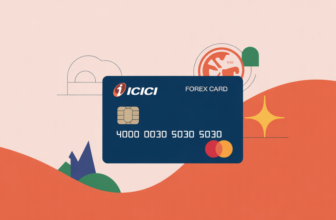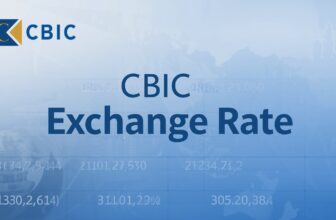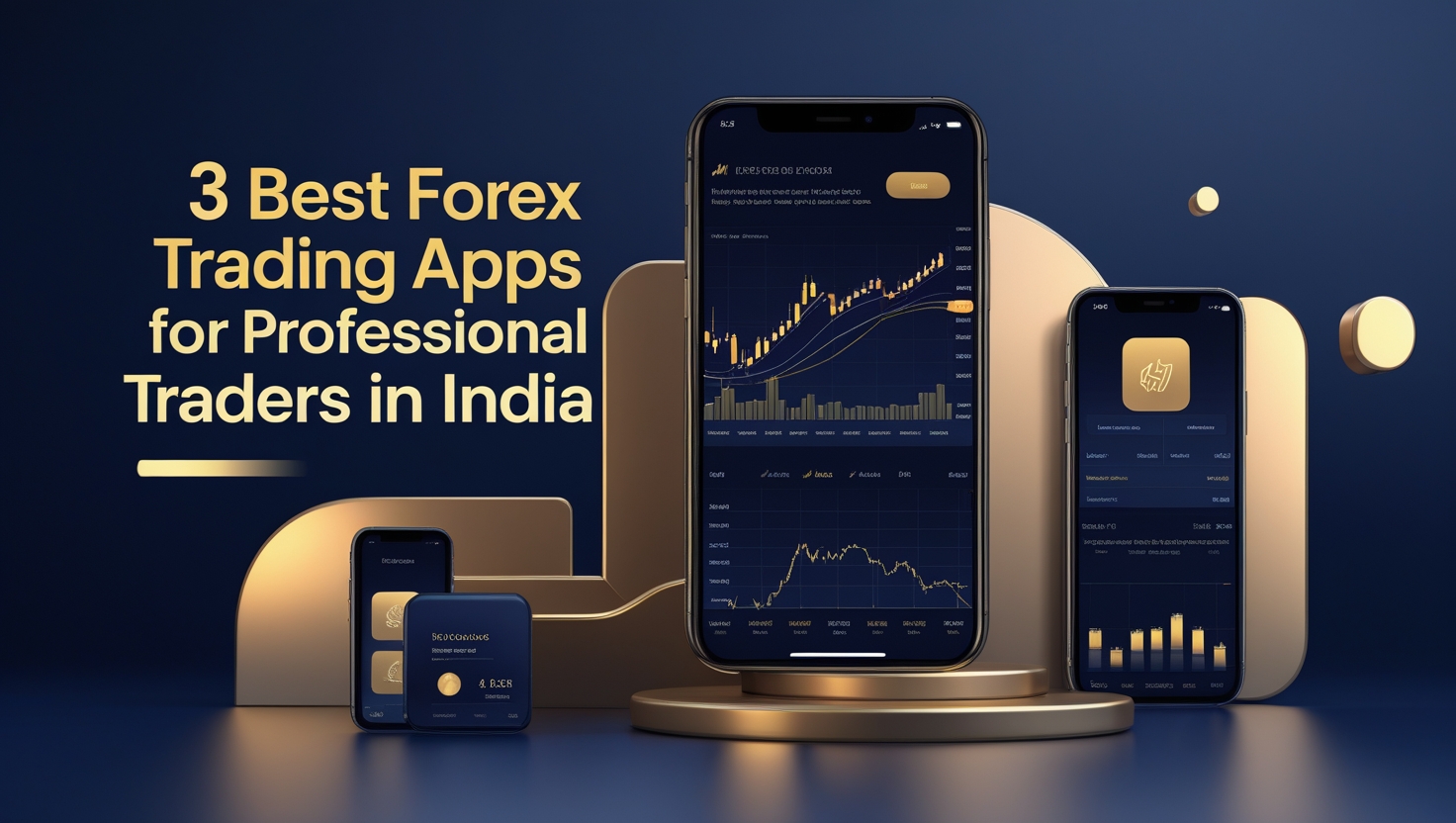
In the modern era, professional traders can manage global currency markets from their smartphones. Active traders “need market news, quotes, charts, and their trading accounts at their fingertips at all times,” notes industry analyst Steven Hatzakis. Mobile apps have made this possible: in fact, most forex brokers now offer fully-functional trading apps for iOS and Android. However, Indian traders must navigate strict regulations. Under Indian law, only certain currency pairs (primarily INR-based pairs and a few major crosses) may be traded as derivatives on recognized exchanges. In practice, forex trading in India is legal only via SEBI-registered brokers and authorized platforms. This means traders should use regulated forex trading apps in India to stay compliant. Here, we examine the top three forex trading apps suited to professional Indian traders, balancing advanced functionality with RBI/SEBI compliance.
Overview of the 3 Best Trading Apps
| Platform | Key Strengths | Cost Structure | Regulatory Status |
|---|---|---|---|
Zerodha Kite Zerodha |
| Free delivery trades ₹20 per intraday/F&O order | SEBI-RBI Approved INR futures/pairs trading |
Upstox Pro Upstox |
| Free delivery trades ₹20 per intraday/F&O order (₹20 flat fee structure) | SEBI Registered NSE/BSE currency derivatives |
IBKR Mobile Interactive Brokers |
| $10 minimum per trade Low commissions (~$2.00 per lot) High-volume rebates available | Multi-Agency SEC, FCA, RBI regulated SEBI-registered (INZ000217730) |
Forex Trading Apps: Legal and Regulatory Context in India
The Reserve Bank of India (RBI) and SEBI tightly control currency trading. Indian residents can only trade currency futures and options on domestic exchanges (NSE, BSE, MSEI), and only in authorized pairs. For example, RBI rules limit trading to four INR pairs – USD/INR, EUR/INR, GBP/INR, JPY/INR – plus three major non-INR pairs (EUR/USD, GBP/USD, USD/JPY), all as derivatives. It is important to note that spot forex trading or exotic pairs are prohibited for Indians; any trading outside approved channels is illegal and penalized under FEMA.
- Allowed Currency Pairs: USD/INR, EUR/INR, GBP/INR, JPY/INR, EUR/USD, GBP/USD, and USD/JPY.
- Permitted Platforms: Trades must be executed through RBI-authorized ETPs or recognized stock exchanges. Apps from SEBI-regulated brokers (Indian or foreign) that provide access to the NSE/BSE currency derivatives are legal.
- Unauthorized Apps: RBI maintains an alert list of illegal forex trading apps. Traders using unlicensed offshore apps risk hefty fines and even criminal charges.
Accordingly, professional traders in India must choose apps that are SEBI-approved and routed through domestic exchanges. As HDFC’s Ankur Chandra summarizes, “legal forex trading in India is limited to trading specific currency pairs… through regulated derivative instruments on recognised domestic stock exchanges (NSE, BSE, MSEI) via SEBI-registered brokers”. In short, always verify that an app/broker is SEBI-registered before trading. Also, ensure the app only lists permitted pairs (INR crosses and the three allowed majors) to avoid legal risk.
Top 3 Forex Trading Apps for Professional Traders in India
Once the legal constraints are understood, professional traders evaluate apps based on performance and features. The table below compares three leading trading apps used by Indian professionals:
Zerodha Kite
Often cited as India’s most popular trading platform, Kite delivers a powerful mobile experience. The app supports advanced technical analysis (including multiple chart types and drawing tools) and fractional stock investing, in addition to currency futures. Importantly, Zerodha is fully SEBI-regulated. As a result, currency trades go through NSE or BSE exchanges, making the app compliant with Indian law. Zerodha charges a flat ₹20 per executed intraday or currency order, which is economical for high-volume traders.
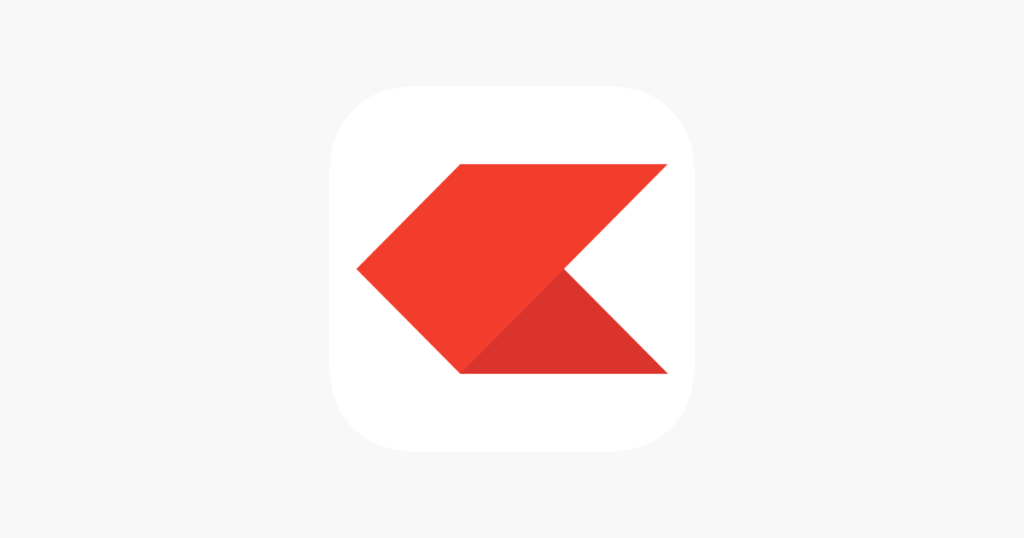
Users praise Kite’s reliability and simplicity; co-founder Nithin Kamath describes Zerodha’s approach as offering “simple, transparent pricing and powerful tech tools” (company sources).
Upstox Pro
A strong competitor to Kite, Upstox Pro offers similar features. It supports all permitted currency derivatives, offers an intuitive interface (with support for Hindi and English), and has advanced order types like OCO and bracket orders. The app includes useful screeners and in-depth charts. Importantly for professionals, Upstox provides API access for automated strategies.
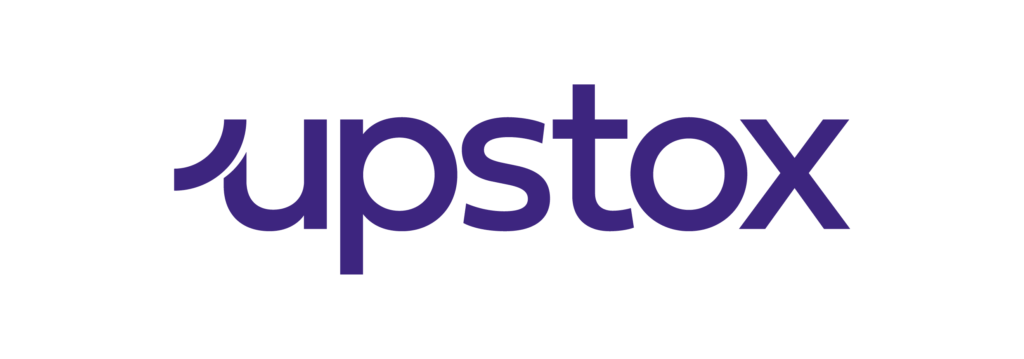
Upstox is also SEBI-authorized, so its forex trades clear on Indian exchanges. Its commission structure is identical to Zerodha’s (zero for delivery; ₹20 per intraday/currency trade), keeping costs low. Angel Broking’s mobile app and others also serve Indian pros, but Upstox Pro stands out for its blend of sophistication and ease of use in a mobile format.
IBKR Mobile (Interactive Brokers)
Interactive Brokers is a favorite among global professionals. Its mobile app – part of the Trader Workstation (TWS) suite – offers unmatched market access: traders can trade INR pairs via currency futures on NSE/BSE, and also access 150+ international instruments (though non-INR currency pairs would typically use overseas accounts). The app includes highly advanced order types, depth-of-market data, and integrated market news and research.
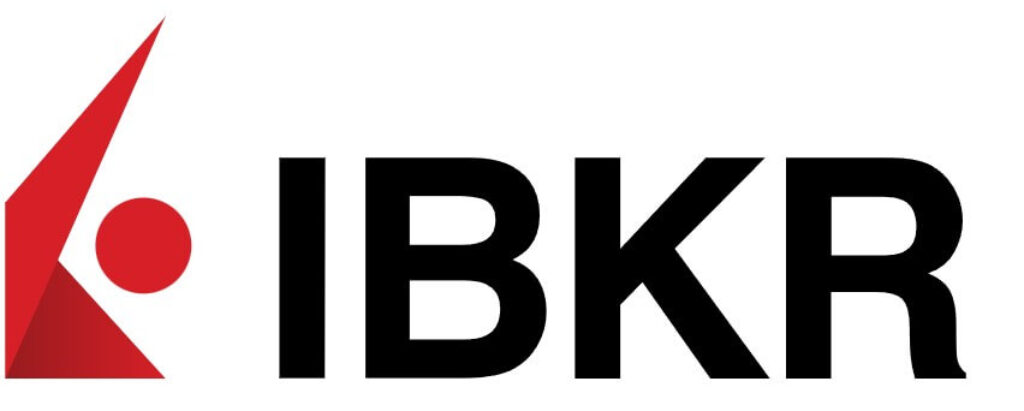
FXLeaders notes that “Interactive Brokers (IBKR) is a top-tier choice for Indian and global traders who need professional-grade tools, broad market access, and low trading costs”. On the downside, IBKR’s commission model is more complex (with a $10 minimum trade commission) and its interface has a steeper learning curve. However, it allows INR deposits (with SEBI registration INZ000217730) and is trustworthy and robust. Many Indian professionals use IBKR for its low latency and deep liquidity, especially if they also trade globally.
Key Features to Consider
Professional traders should look for apps with:
- Advanced charting tools and indicators – the ability to run technical analysis on the go.
- Low transaction costs – tight spreads or flat commissions (as shown above) to support high-frequency strategies.
- Customizability and automation – e.g. custom scripts, APIs or algorithmic tools. Zerodha and Upstox support APIs, while IBKR supports API trading and portfolio rebalancing.
- Reliability and speed – stable connections and low latency execution. Highly rated apps like Kite and IBKR typically have 99%+ uptime.
- Multi-device sync – seamless experience between mobile and web/desktop. (For instance, MetaTrader 5 or TradingView can sync charts between devices; IBKR syncs across its platforms.)
Conclusion
Professional forex traders in India must navigate a trade-off between regulatory safety and advanced features. By choosing SEBI-approved apps, they operate within the law; at the same time, they should select platforms that match their trading style. Each app has strengths: Zerodha Kite and Upstox Pro excel at fast, low-cost trading of INR currency derivatives, while IBKR’s mobile app offers unparalleled global reach. As DailyForex analyst Huzefa Hamid advises, many traders adopt a dual approach: using a domestic app for Indian-compliant trading alongside an international platform for broader market access. Finally, traders should always test any app in a demo environment first, use risk-management tools (like stop losses), and stay updated on RBI/SEBI guidelines. Professional trading demands both robust tools and disciplined compliance. By leveraging the apps above and trading responsibly, Indian professionals can confidently navigate the forex markets.
FAQ
Is forex trading legal in India?
Yes, forex trading is legal in India but under strict conditions. Indian residents may only trade currency futures or options on recognized exchanges (NSE, BSE, MSEI) and only for permitted currency pairs. Trading other pairs or using unauthorized offshore apps is prohibited and can lead to penalties. Always trade through SEBI-registered brokers.
Which forex trading apps are RBI-approved in India?
Only apps from SEBI-authorized brokers are approved. In practice, major Indian broker apps like Zerodha Kite, Upstox Pro, ICICIdirect, HDFC Securities, Sharekhan, and others are approved (they clear orders on NSE/BSE). Global apps like Interactive Brokers’ mobile app also serve Indian traders under RBI rules. It is important to verify an app’s SEBI registration and that it only offers allowed INR currency pairs.
What features should professional traders look for in a forex app?
Professional traders need advanced features. Look for: real-time charting (multi-timeframe, many indicators), technical analysis tools, and custom alerts. Also ensure fast execution and reliable order entry (e.g. one-click trades). Lower trading costs (tight spreads or flat fees) are important for frequent trading. Multi-device sync, API or automated trading support, and robust security (2FA) are also critical. In short, the best apps combine sophisticated tools with stability and compliance.
Can Indian traders use global forex trading apps?
Yes, but with caution. Indian traders may use globally licensed apps (like IBKR, IG, OANDA), but these apps cannot execute INR cross-derivatives onshore. If used, international accounts can only trade permitted pairs (e.g. USD/JPY) and generally require funding under RBI’s Liberalised Remittance Scheme. Many pros use one domestic app (for INR futures) and one global app (for broader pairs) to complement each other. Always check that any foreign broker accepts Indian clients and adheres to RBI/SEBI rules.









